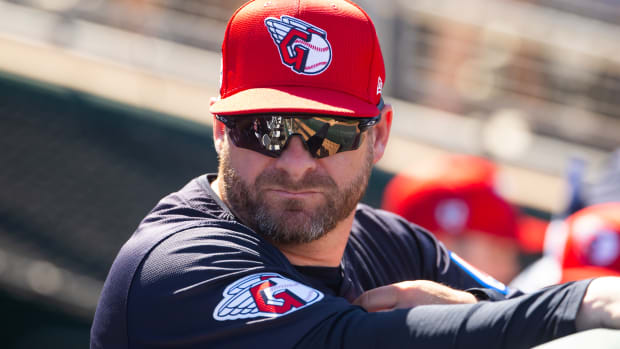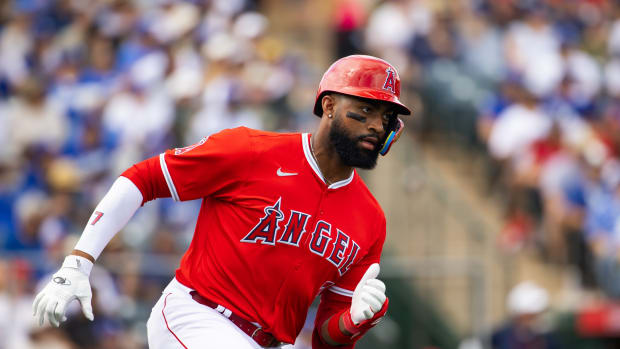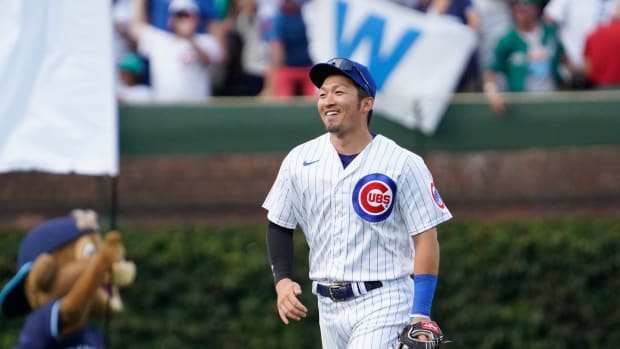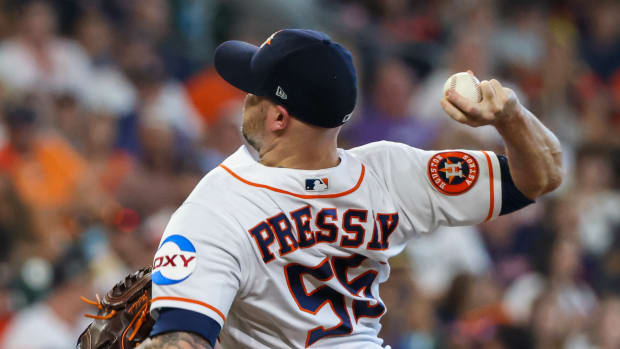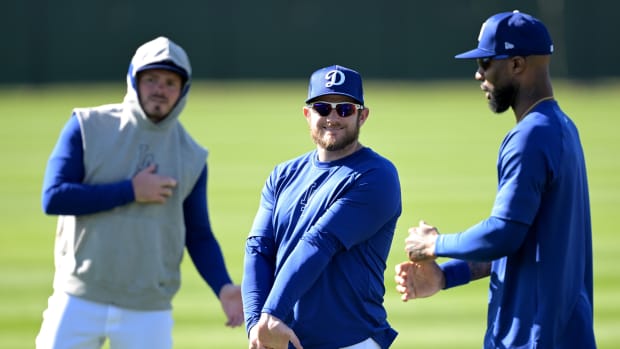Manny Machado's 10-Year Contract With the Padres Proves Free Agency Isn't Broken After All
SURPRISE, ARIZ. — Let’s discuss the “free agent is broken” narrative and the “one-third of the teams are tanking” canard. Just one day after players association chief Tony Clark wickedly called out teams for not trying to justify the cost of a ticket, a low-revenue team without a winning team in six years under its current ownership just spent $300 million on a guy called out as a dirty player and who projects as Ryan Zimmerman with a better glove.
By signing Manny Machado, the San Diego Padres have invested $527 million in Wil Myers, Eric Hosmer and Machado, the last two of which have been signed in February.
Free agency isn’t broken. It’s been recalibrated. The speed of the game has made older players less valuable than they have been in a generation. Ten years ago players 25 and under and players 33 and older started virtually the same number of games. Now the younger guys start more than twice as many games as the older guys. A huge part of the appeal of Machado, 26, is that the Padres are buying his best years.
The other recalibration has come in the timing of the baseball calendar. Later is the new normal. It reduces emotion and an auction atmosphere from huge investments and complicated terms. Because teams didn’t rush to wine and dine Bryce Harper and Machado, media and players jumped on the “free agency is broken” theory, as if writing their movie reviews before the flick was even finished. Now you’ll probably see Harper sign for even more than $300 million with the Phillies, another team without a winning record over the past six years.
Machado, for all the complaints about being unsigned for so long, did really well for someone who revealed himself in postseason play with his reckless play and lack of hustle. Here’s what the signing means for the Padres: a big expenditure like this makes perfect sense for San Diego based on where it is on the winning curve. But the risk is choosing Machado to be your franchise player.
San Diego has what may be the most loaded farm system in baseball and, other than with Myers and Hosmer, almost no other money committed long term. “I think it’s a good fit,” said one baseball executive. “The quality of the player and the timing with respect to their prospects makes a lot more sense than the Hosmer and Myers decisions.”
As I wrote previously in San Diego’s pursuit of Harper, the Padres are desperate for relevancy. The franchise has not had a position player start the All-Star Game since the late Tony Gwynn in 1998, they have had no player get even one Cy Young or MVP vote in the past six years, they have not had anybody hit 32 home runs in nine years, and they lost almost half their local television viewership in the past three years. (Padres executive chairman Ron Fowler has 20% ownership of the team’s local carrier.) They now have a face to the franchise.
San Diego should not be a surprise as his destination. Of the seven largest free agent contracts to players who switched teams, five have been handed out by losing teams. Harper is likely to make it six out of eight.
Machado, 26, has age on his side and is a proven producer with a fantastic glove at third base. Through his age 25 season, Machado (.282/.335/.487) looks a lot like Zimmerman at the same age (.288/.355/.484). The Padres are buying consistency from Machado. What they are not getting are assurances that this is the guy you want to influence Luis Urias, Francisco Mejia, Austin Hedges, Fernando Tatis Jr., and the rest of the young Padres knocking on the door.
During Machado’s reckless, controversial play in the postseason last year, one rival manager speculated the on-field lapses would cost Machado years on his new contract. “When you sign someone at those dollars he becomes your franchise player, and that’s not the type of leadership you want,” said the manager. As it turned out, the episodes cost Machado nothing.
Said one executive, “The best player as the best example is the goal. He won’t be the best example.”
Said one source on the Dodgers, his former team, “The players liked him enough. The problem with Manny is that he is easily influenced. He can go in different directions. He’s not the guy you want to be the influencer.”
It was only last October that Machado ran recklessly into first baseman Jesus Aguilar, didn’t hustle, and even took ownership of not hustling. Four months later he signs the biggest contract in free agent history and does so with a team that hasn’t won a playoff game in 13 years. Baseball is beautiful, even when it takes four months, not four weeks, for such enrichment.






























